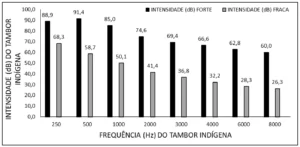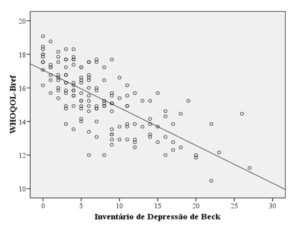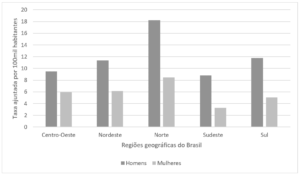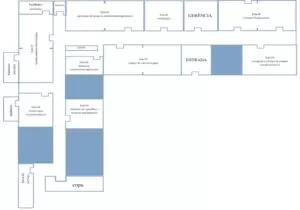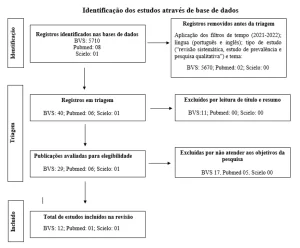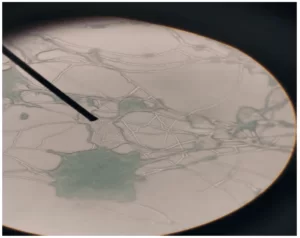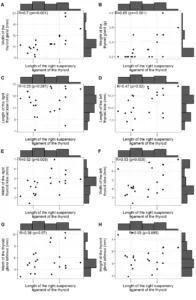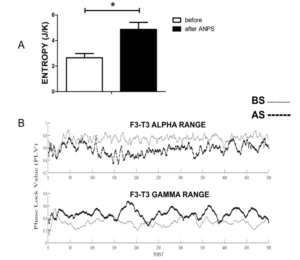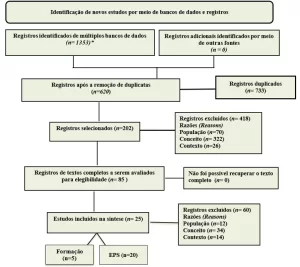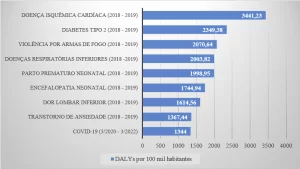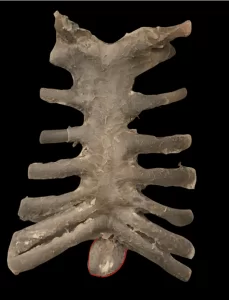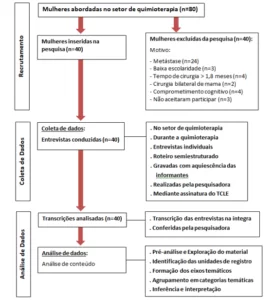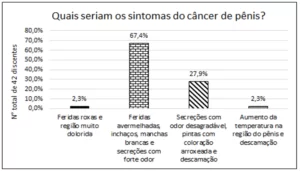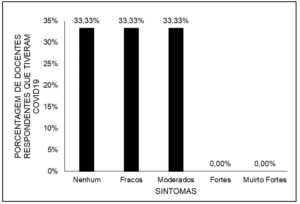ORIGINAL ARTICLE
BARBOSA, César Martins [1], PINTO, Isabela Cardoso de Matos [2]
BARBOSA, César Martins. PINTO, Isabela Cardoso de Matos. Health manager at SES Tocantins: Evaluation of knowledge and competencies. Revista Científica Multidisciplinar Núcleo do Conhecimento. Year 05, Ed. 11, Vol. 02, pp. 26-44. November 2020. ISSN: 2448-0959, Access Link: https://www.nucleodoconhecimento.com.br/health/health-manager, DOI: 10.32749/nucleodoconhecimento.com.br/health/health-manager
SUMMARY
This is an exploratory descriptive study, whose main objective is to characterize the profile of the health manager, through the mapping of knowledge and skills. With regard to knowledge and application of the laws that govern the bidding process, 93% of respondents know the bidding laws and use them in their daily work, while 6.7% have knowledge about the subject, however, they do not use it in the performance of their tasks. Regarding the legal bases of SUS, it is known for only 73.3% of the sample. The data show that 80% of professionals know the LRF. About LOA, only 40% of the interviewed professionals claim to know it. When the subjects were asked about their knowledge about PPA, only 60% said they knew the instrument. SIOPS is known to only 40% of the group. 86.7% of professionals know the RAG. PPI is known by 66.7% of the interviewed professionals. As for the PS, only 66.7% claim to know it, the PES is known by 86.7% of the interviewees. When asked about the priority agenda, 66.7% said they knew it. Some managerial skills are highly encouraged, others are not. Among those stimulated, they are: openness to change, ethics and professionalism and quality awareness, with 46.7% of respondents responding positively to these stimuli. Other skills such as acting preventively and expressing themselves critically (40% each) and knowledge about health policies (53.3%). In addition, we can see: teamwork (40%), communication (46.7%) and strategic vision (33.3%). Other skills are reasonably encouraged: initiative and creativity; and ability to lead people (26.7% each). 40% of managers do not feel encouraged to participate in decision-making processes. At the end of the study, the influence of the managers’ profile on the improvement of management practices was noticed, since it showed the potentialities and challenges faced and will serve as a basis for the process of permanent qualification of the professionals involved in management, translated into more effective and efficient, provided by the knowledge and use of mechanisms to support SUS management.
Keywords: Health manager, health manager profile, knowledge and competencies of the health manager.
INTRODUCTION
In recent decades, health policy in Brazil has undergoing a series of legal, institutional, managerial and organizational changes. With the process of decentralization and, consequently, the diversification and complexity of the responsibilities of managers, since public health management encompasses the management of the system and management of service delivery units.
The management of the health system involves an enormous complexity, which, among many attributions, requires knowledge about the real health situation of the population, the management of administrative, financial and accounting practices, as well as the knowledge of the entire legal framework with regard to the Public Health System, also going through power relations, interpersonal relations, interests and negotiation.
The work process and the management of public health organizations cover a set of challenges faced daily whose main aspect deserves to be highlighted is the delimitation of the profile of health professionals who work directly in the management of the system to meet the needs of the population. In this sense, aspects related to decision-making capacity, process coordination, search for partnerships, planning and implementation, monitoring and evaluation of public policies make the exercise of management practice constantly evaluated and considered.
The work process and the management of public health organizations are related to a set of factors, among them, the conformation of work teams that are constituted by different professional profiles, diverse academic trajectories and multiple experiences within the SUS, whose hierarchical and decentralized organizational model consists of specialties and specialists in various care, technical and administrative sectors.
With regard to scientific production on the subject, the research carried out in the literature identified few studies that analyze management from the perspective of the articulation between the competencies and attributions necessary for the manager and its training. Among these, one can mention the research conducted by Luna in 2008, which outlined the profile of municipal health managers in the state of Mato Grosso; the study by Silva and Roquete, in 2013, which presented the competencies of the manager in health services: analysis of scientific production, from 2001 to 2011, and, finally, the work of Rosso and other authors, in 2013, who described the profile of managers of health districts of Goiânia.
According to Barbosa (2016) the state of Tocantins made an important investment to meet the existing needs regarding the search for efficiency and effectiveness in the management of the health services system offered to the population with the creation and incorporation of the position of health manager in the career plan of public servants of the State Department of Health.
On June 30, 2005, law no. 1,588/2005 was published in the Official Gazette of the State of Tocantins, in its issue of no. 1,953, whose objective is to present the plan of positions, careers and subsidies of the effective health professionals of the state of Tocantins. Clearly and objectively, Annex I, the aforementioned law provides for the creation of the position of strategic higher level of the Health Secretariat called health manager, which since its creation to the present day counts 16 professionals for the entire state, whose attributions are of high complexity and responsibility comprising: planning, execution, monitoring, control and evaluation of government programs; expertise in research in public administration/ public health, formulation, analysis, monitoring and evaluation of programs and projects that confer efficiency, effectiveness and effectiveness to the management of public health policies. This professional also competes in the exercise of the functions of supervision, coordination, direction and advice for the articulation and integration of institutional projects and programs related to health policies implemented by the government, contributing to the three management spheres of the Unified Health System – SUS – at the National, State and Municipal levels, respecting the service regulations and the needs of the public health system.
To assume the position of health manager, law no. 1,588/2005 defines some mandatory requirements: Being a holder of a higher education degree recognized by the Ministry of Education in any area of knowledge, plus a specialization course in: public health, collective health, health surveillance, hospital administration, auditing health services or management of public health services. In addition professional needs to be approved in public tender of evidence and titles to take possession of the position in question.
However, there was a failure with regard to higher education in any area of knowledge, because the practice of management involves a set of skills and abilities that often do not compose the curricula of any and all higher education, generating great challenges in relation to the knowledge and experience of professionals when they assume a position in the management of the health system.
Another mistake in the formulation of the requirements to assume the public position of health manager at the Tocantins Health Department was the non-requirement of experience / professional experience in public management / health management.
Based on the assumption that the health institution should know the profile of professionals to outline strategies that seek the quality of services provided by the Health Department of Tocantins (SES-TO), and the qualification of professionals working in the system was conducted this study, which points out relevant aspects for the qualification of management and identification of existing gaps for the performance of management functions performed by health managers of SES-TO.
In addition, it is important to analyze the distances between knowledge and the experiences of professionals who have entered as managers seeking to relate to the attributions required by the position they occupy in the Health Secretariat. Thus, the questions that led to the present study were: Who is the health management professional in the state of Tocantins? What knowledge and skills are required of them in the performance of their duties?
In view of the above, the objective of this study is to present the profile of the health manager in the state of Tocantins, contributing to the improvement of management, so that it can broaden the reflection on the management activities and characteristics of the health units where they operate.
HEALTH MANAGEMENT: DEFINITIONS AND ASSOCIATED COMPETENCES
Several authors draw attention to the debate regarding the concepts of management and administration, considered by some as synonyms (MOTA, 1997; SOUZA and VIANA, 2014). For Mota (1997), the term management is related to the management of the Anglo-American private sector and to the publishing administration of the French line. Both management, management or even management are terms that can be understood as synonyms, although, depending on the situation or use of these terms, some may highlight the broader and more relevant meaning. Considering that currently, in the second decade of the 21st century the term management has been used, more precisely to explain the political and strategic dimension in the face of classical operational administration.
The classic definition of administration proposed by Henry Fayol in the early twentieth century was to plan, organize, direct and control resources with a view to achieving results. For this author, planning consists of making decisions about objectives to be achieved, the organization of activities and monitoring of the resources used. Organizing refers to distributing authority and responsibility among people taking into account the allocation of physical, technological, financial and human resources. For this author to direct means mobilizing resources, especially people, to accomplish the tasks and achieve the objectives. Finally, the control function is concerned with monitoring and supervising the use of resources in order to complete the tasks in order to ensure the achievement of the objectives outlined at the time of planning.
From the perspective of the situational strategic planning of Carlos Matus (1996), much adopted by authors in the areas of collective health and public health such as Rivera (1989) and Teixeira (2002), management is seen as one of the main moments of strategic planning, the tactical-operational moment. According to Motta (1997), the term management suggests the idea of directing and deciding: “The primary purpose of health management is the production of decisions, this being a complex process that involves qualification, motivations, interests, intuition, knowledge, skills and skills”
According to Fernandes; Machado and Anschau (2009), in the health area, with the publication of the Basic Operational Standard (NOB) 96, management and management began to have different meanings, and management has an operational and administrative character (i.e., can be replaced by the term administration), when applied on services (basic units, clinics, outpatient clinics, hospitals, institutes, foundations) and reserving for the term management the macro functions in the health system whose objectives are planning , coordination, articulation, negotiation, monitoring and evaluation of policies related to the Unified Health System (municipal, state, district and national).
When explaining about the concept used by the World Health Organization – WHO in 1978, Souza and Viana (2014), reaffirm the concept of expanded management, which understands the administration as a set of techniques used for the operation of an organization, taking into account aspects related to planning, financing, accounting, resource allocation, personnel management, systems analysis, etc. , including the political decision-making process also as the objective of management. In this sense, the concept of management adopted by the World Health Assembly of 1978 is closer to the concept of planning created by Matus than to the concept of classical administration of Fayol. In this sense, the concept of management is perceived as an indirect activity and extremely fundamental for the control of the work of the professionals involved in the processes. It is part of the management control, in its authoritarian or democratic aspects, which are essential for the actions to be coordinated and integrated whose objective is the production of positive results that impact on the achievement of the organization’s goals.
According to Fernandes; Machado and Anschau (2009), the reorientation of management functions can be seen as one of the strategies for the consolidation of the principles of the SUS and for the transformation and qualification of health practices, creating conditions for the direction of the work process, for the development of technologies and services, for the better application of resources efficiently and effectively contributing to the problem solving of the problems faced by users of the public health system. The expansion of management functions in the public health system requires a new set of competencies that must be charged to the public manager and that will contribute very significantly to the best performance of the system.
Bergue (2011), cites the mission imposed on public managers, emphasizing the complexity and variety of knowledge and skills necessary for professionals working in management. For this author, the complexity and variety increase much more when applied to the management of the public health system.
Souza (2009), when reflecting on management strategies that bring the SUS closer to the necessary SUS, takes into account the hierarchy in which it first seeks to understand the implementation of the SUS as a political struggle and then adopt an expanded concept of management, which covers the entire scope of the SUS. Only after these two steps is it possible to consider the actual activities performed by the health manager. The same author considers public health management as a complex activity, which requires a diverse set of skills and abilities, in addition to the continuous qualification of the actors involved. Public health management also involves a range of administrative, legal, financial, budgetary, relational and behavioral knowledge that directly influence the performance of the system.
Regarding the complexity of health management, Mintzberg (1995) states that health organizations are characterized as professional bureaucracies. According to this author, professionals are differentiated workers because the very exercise of their competencies requires them to have a high degree of autonomy in their work process. The professionals involved in the health system are aware of their singularities, being holders of privileged information that is not made available to either managers or to service users, who are thus in a situation of dependence, so decision-making power is not limited only to the manager who often does not make the right decisions due to lack of information / evidence that influence the decision-making that is more accurate to the context of the public health management system where it operates.
Fragelli’s studies (2013) point out the deficiencies and flaws in professional training in the health area, and the grades of the courses do not include the management of the health system and the particularities of public administration, so professionals are being trained without the knowledge and skills necessary to act in the management of the Unified Health System, both managers of the health system (strategic level) and unit managers , departments, sectors that provide services to users (tactical and operational levels) negatively influencing system performance.
From Azevedo’s studies (2010) it was noticed that health management is very complex and permeated by conflicts of interest, thus, the health manager is required a range of skills and abilities that are directly related to the good performance of the system, among them: negotiation skills, since the manager will participate in several interfederative meetings, partnerships with public and private institutions and contractualizations with suppliers and service providers; ability to lead people; knowledge of sus management tools and budget management mechanisms of public administration; Knowledge about the entire legal framework of the SUS and public management; effective participation in planning, execution, monitoring, control and evaluation of government projects and programs. All the competences and skills mentioned above aims to confer the effectiveness, efficiency and effectiveness in the management of public health policies meeting the needs of the system and the needs of the population.
Brito and Braga (2010) affirm that the new social demands bring about the need to build new profiles of professionals operating in the strategic management of health systems that can account and add value to local realities, in view of the management functions of planning, controlling, evaluating, articulating, negotiating and managing conflicts. In fact, the learning and development of leaders are happening concomitantly with the performance of these professionals with the objective of qualifying them and filling this gap during the undergraduate period.
Matus’s studies (1996) confer the importance of the role of the manager as a manager and leader contributing to the training and training of management throughout the public health system, which is extremely important for the strengthening and ascension of the capacity of government, including in the training of these professionals the leadership skills and the appropriation of knowledge about process flow and changes in work systems , as well as the organisational design of the institutions under his command.
Paim and Teixeira (2007) affirm the existence of some critical nodes related to the organizational structure and management process of the SUS, which take into account the difficulty of communication between the three levels of government – due to the heterogeneity in institutional development both in the Ministry of Health, as well as in the state and municipal health departments, in addition to the conflicts of interest that permeate each level of government.
The same authors also highlight “amateurism” in the management of the system, because those who are chosen to assume the position of secretary of health, do not always have the capacity to assume this position beyond the scarcity of professionals trained for the exercise of multiple and complex functions inherent to public health management.
According to Boniatti, (2012) apud Gonzaga (2008), over the years, a discussion has been advanced around the characterization of the professional and academic profile of the manager working in the health system, but still very incipient. According to the author, it is extremely important to understand what are the objectives of the position of health manager and what kind of contribution is expected of this professional, as well as what results he expresses in relation to the objectives and goals planned by the local government and the health organization to which he is linked.
The characterization of the professional and academic profile of the actors involved in the health management process is of great importance and serves as a model to guide the knowledge, skills, qualifications and experiences required for better performance of management functions in the health manager’s practices to achieve the objectives and goals required by the position and the needs of the government.
When discussing the needs of health management, Souza (2014) points out the articulation between the actions of professionals and the redesign of work processes. The professional character of the health work process, both in care and management, suggests the renewal in health organizations that results from progressive and constant changes in the behavior of professionals, through educational actions offered continuously and the articulation between the improvement of working conditions and the responsibility of professionals for their individual and collective performance , causing the professional to recognize his role in the system. In this sense, the manager can and should develop strategies aimed at the qualification and professional updating of those who assist him in the management, aiming to ensure that these workers will have the appropriate skills and necessary to carry out the activities that contribute to the achievement of the objectives planned and required by the organization, as well as the needs of the government and the anides of the assisted population. In addition, the same manager can develop new management strategies related to the implementation of more effective work processes and more motivating relationships aimed at strengthening relationships at work within the health system. Strategies such as these strengthen management, improve relationships in work and motivate professionals, because they feel recognized and willing to give more to achieve organizational goals and objectives.
METHODOLOGY
This is a descriptive exploratory study, whose main objective is the characterization of the profile of the health manager, through the mapping of the knowledge and competencies presented by these professionals in the development of their functions.
The production of empirical data involved a universe composed of 15 of the 16 subjects occupying the effective position of health manager working in SES-TO, thus totaling 93% of the subjects who are part of this group. A semi-structured interview containing the following dimensions was used as a data collection instrument: sociodemographic information, professional training, knowledge, professional experiences and the main challenges experienced in daily professional life. The subjects were informed about the research objectives and invited to participate. The Free and Informed Consent Form (TCLE) was given and the signature was requested, agreeing to the terms set out, in accordance with the precepts of resolution 466/2012 of the National Health Council (CNS).
Soon after, the managers were interviewed. Data were collected in January and February 2016. All questions were answered in their entirety by the participants, thus not refusing. In order to preserve the identity of the participants, the interview scripts were identified by the researcher by the letters GS (health manager), followed by the delivery order number (GS1, GS2, GS3…). After data collection, quantitative information was tabulated in excel spreadsheet.
The research followed the precepts of the CNS, resolution 466/2012, regarding data reliability, confidentiality of information, guarantee of anonymity and use of data only for scientific purposes, and the same one approved by the research ethics committee of the Institute of Collective Health – UFBA, under opinion no. 1,333,224, of December 16, 2015.
RESULTS AND DISCUSSION
Regarding sociodemographic characteristics, there is a predominance of females (60%), confirming the growth of women’s presence in health management in the state of Tocantins, corroborating the feminization pointed out in other studies (FLEURY et al., 1997; VILAR, 2003).
Regarding the professional training of the managers interviewed, a heterogeneity is identified in relation to the undergraduate courses of the subjects participating in the research. These data suggest that SES-TO is incorporating and expanding multidisciplinarity to the extent that it has been forming management teams with different academic backgrounds, not necessarily from the medical or nursing category, as in the past.
In SES-TO, the majority of managers (27%) it operates in health surveillance, that is, most managers are crowded in the superintendence of surveillance, promotion and health protection. The other are thus distributed in the laboratory network, in the area of health planning, in primary health care and health education, in the hospital network, in control, evaluation and regulation.
Regarding the current position or function, the interviewed subjects who joined to assume the position of SES-TO manager are assuming various functions, namely: most (9) of them are technicians; 3 are advisors/directors; 2 occupy the position of superintendent; and 1 director. Most health managers are administrative technicians, without a position or with a position of trust in management, which demonstrates the prevalence of political interests.
In Tocantins, the results indicate major problems in relation to the knowledge and use of the main public management instruments and also of management of the public health system. Among the problems pointed out, the high number of professionals who are unaware of the budget guidelines law (LDO) (40.0%) is notesome. and the annual budget law (LOA) (60%) – executive authority liability laws, which comprise the main goals and priorities of the public administration when fixing the revenues and expenses programmed by the government, respectively. The results point to the fragility in the allocation capacity of budgetary and financial resources for specific use in the health area with the government itself and other governmental spheres, and may, if this persists, there may be damage to local health policy.
Figure 1 – Knowledge of the main management tools by managers – SES-TO/2016
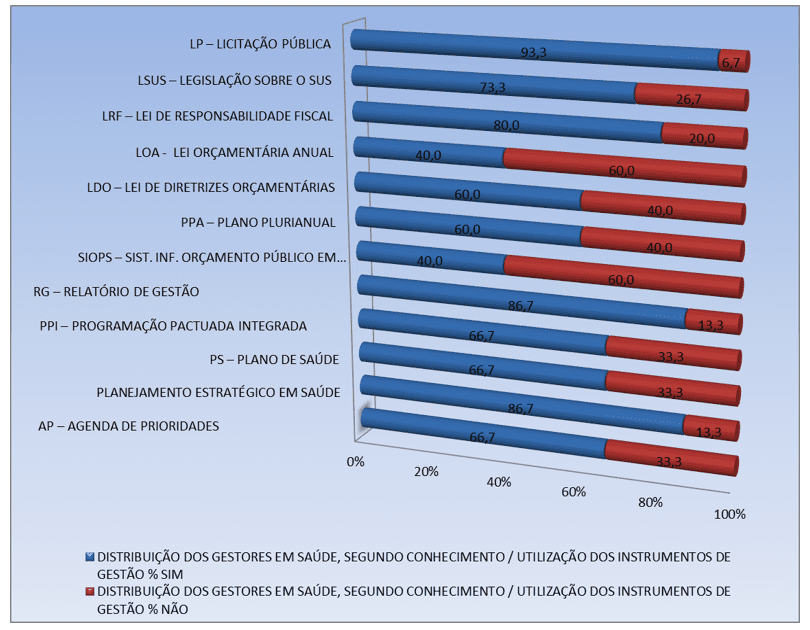
With regard to the knowledge and application of the laws that govern the bidding process, 93% of the interviewees know the bidding laws and use them in their daily work, while 6.7% are aware of the subject, but do not use it in the performance of their tasks.
Regarding the legal bases of the SUS, the vast majority of respondents (73%) affirms to know the legal framework of the SUS against 26.7%. These results point to failures during the training process of these professionals, because it was expected that 100% of managers knew the main laws that guide the SUS.
The Fiscal Responsibility Law (LRF) seeks to create a condition of budgetary, financial and fiscal balance in order to inhibit a common practice of some governments, by making large long-term investments compromising the ability to pay the current government and the next elected representatives. The LRF has contributed to greater transparency in public spending, thus facilitating the fight against corruption. Regarding the knowledge/use of The LRF. The data show that 80% of the professionals are aware of this instrument, while 20% say they do not know it.
With regard to the annual budget law, only 40% of the professionals interviewed claim to know, while 60% of them, that is, the majority, are unaware of the existence of this budget mechanism. Of all the instruments addressed in the research, the LOA presented the most worrying result, pointing once again to the deficiency in the professional education of the interviewees.
The Budget Guidelines Act – LDO is known to only 60% of survey participants. During the interviews, there was a certain discomfort when answering this specific question, reaffirming again important gaps in the training of the managers interviewed, as shown below:
I plan, monitor and evaluate the activities of the technical area, but I do not know anything about financial and budget, ai ai, this is a big problem for me … this part I leave to the accountant, administrator, economist… I ask how much we have to spend on the actions and then I schedule the activities along with the other technicians, simple as that. (GS7)
When the subjects were asked about their knowledge regarding the multiannual plan (PPA), 60% said they were aware of the instrument, while 40% did not know what it was about. The information system on public health budget is known to only 40% of the group of managers interviewed, and 86.7% of professionals claim to know the annual management report, against 13.3% who do not know.
The Integrated Agreed Programming (PPI) is known by 66.7% of the professionals interviewed, against 33.3% who say they do not know this instrument. Regarding the health plan, 66.7% said they knew it, while the remaining 33.3% are unaware. Strategic planning in health is known to 86.7% of respondents.
Asked about the knowledge of a priority agenda, 66.7% said they knew it, while 33.3% did not know it. Thus, it is understood that the ignorance of the measures necessary for the adjustments demanded by the SUS is due, among other factors, to the little knowledge and/or difficulty of access to the legal device established for this system, to the various and constant updates that occurred in the rules of operation of the public health system during the construction of the SUS. These results suggest the urgent need for a permanent qualification and updating process that allows professionals to discuss their experiences and challenges faced in the day-to-day day of public health management during the work process (MINTZBERG, 1995).
Figure 2 – Use of the main management tools by managers – SES-TO / 2016
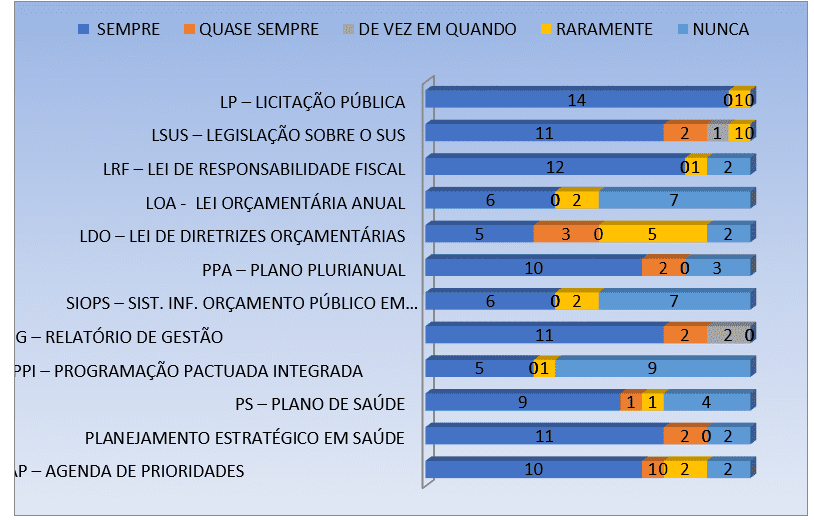
Among the data collected and presented in Graph 2, 93% of professionals always use the laws that govern the procurement process in public administration. Regarding the legal bases of the SUS, 73.3% of the interviewees stated that they always use SUS legislation in the development of their activities. 80% of professionals always seek to adapt to the LRF, observing the prudential limits between expenses and planned revenues.
What is most striking is that 7 of the 15 managers, that is, 46.6% never use the annual budget law for monitoring and evaluation of activities. Regarding The LDO, only 5 of the 15 managers (33.3%) they use this instrument in the development of their activities as a health manager, which reveals a serious deficiency in management and an urgent need to invest in the training of these professionals.
Another management tool that is never used by 7 of the 15 professionals (46.6% of the group) is the information system on public health budgets; 11 of the 15 managers (73.3%) participate in the preparation of the annual management report, indicating, in this way that not all professionals are included in this process
Another challenge to be overcome by managers is the use of PPI, as 9 out of 15 managers (60%) say they never use it. This shows that these professionals do not participate in the agreement between the federated entities. The health plan should be a managerial instrument capable of guiding the institution’s practices, however, the data reveal that only 40% of managers do not use this plan in the development of their activities. This specific data points to the need to include these professionals in the planning of actions to be carried out during the year. As for the priority agenda, 10 of the 15 managers (66.6%) claim to use it frequently in the development of their activities. And 73.3% of respondents claim to know and use strategic planning as an instrument that guides the development of health actions.
It is important to highlight that these are the information and understanding expected for a person who acts in the management of the Brazilian health system, that is, to know well the legal institution of the organization in which it operates, understanding its laws and principles, ensuring its objectives. The requirement of a solid knowledge of the legal foundations and administrative, logistical and budgetary instruments that underpine the SUS thus avoiding the introduction of inconsistent and unfeasible noises, myths and proposals for the solution of problems affecting management in the SUS (MENDES, 2002). In addition to facilitating the achievement of the objectives and goals agreed between the federated entities.
For Campos (2000), the manager must understand the mission and define the objectives of the organization, and only after that, elect the means that will contribute to achieve the organizational objectives: financing, rational administration and everything else.
Graph 3 – Stimulating the use of managerial skills in the work environment SES-TO / 2016
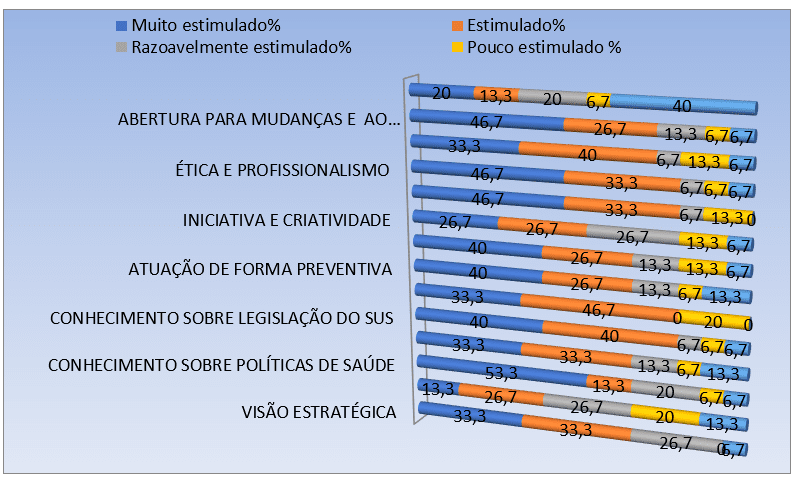
Source: SES-TO/2016
Graph 3 presents some very stimulated management skills, and others do not. Among those encouraged are: openness to change, ethics and professionalism and quality awareness, with 46.7% of the interviewees responding positively to these stimuli. Other competencies are added here, such as preventive action and critical expressing themselves (40% each) and knowledge about health policies (53.3%). In addition, we see: teamwork (40%), communication (46.7%) and strategic vision (33.3%). Other skills are reasonably stimulated: initiative and creativity; and ability to lead people (26.7% each).
Among all the findings of the research, the data that draws the most attention and points to fragility in the training of managers is the fact that only 40% of the interviewees feel stimulated to participate in decision-making processes. This lack of incentive to participate in decisions can be again proven when it is found that 66.7% of these professionals act as technicians of higher education, without a position or function of trust in the current government.
FINAL CONSIDERATIONS
The findings of this research show that many managers claim not to use some basic instruments of SUS management, including: PPI, SIOPS and LDO, thus pointing out weaknesses in management, especially with regard to public budget planning, and decentralization of financial resources and the process of agreement among federated entities, whose results reveal the urgent need for alignment with training institutions with regard to the definition of curricular components for professionals and health can act in the health management, linking to the needs of the service, the allocation of public resources, government planning and the anides of the user population. In the field of management, the emergence of new modalities of organization and provision of services poses new challenges for which managers are not prepared to act effectively and efficiently.
The results allow identifying the competencies, today, necessary for the manager to perform his role in the best possible way, considering the leadership capacity, ethical and social responsibility, negotiation skills and conflict management, time and change management, performance in planning, monitoring and evaluation of results. These items need to be worked through a process of permanent education of these professionals.
The qualification of this workforce will also configure as another element in favor of the success of management, translated into more effective and efficient actions, provided by the knowledge and use of management support mechanisms included in the legal framework of the SUS.
In view of the results found and the complicating factors pointed out by the professionals interviewed, it is concluded that management practices in the health department should be planned by the teams and managers.
At the end of the study, we noticed the influence of the characterization of the profile of managers in the improvement of management practices, since it showed the potentialities, bottlenecks in professional training and the challenges faced by the interviewees and will give basis to the process of permanent qualification of professionals involved in the management and strengthening of the management processes of the State Health Secretariat of Tocantins , translated into more effective and efficient actions, provided by the knowledge and use of mechanisms to support the management of the SUS.
This study can be used by the State Department of Health and ETSUS to propose, evaluate and/or intensify the different strategies of continuing education covering the qualification of employees in relation to the use of the main management tools of the SUS that should be used in the monitoring of public resources, in decision-making and in the evaluation of the results of SES-TO, considering the main notes related to training, knowledge and challenges faced by health managers in SES-TO.
REFERENCES
AZEVEDO, L. F. M. Nervos: Rede de discursos e práticas de cuidados na Atenção Básica no município de Natal-RN. (TESE), Natal-RN: Universidade Federal do Rio Grande do Norte, 2010
BALSANELLI, A. P.: JERICÓ, M. C. Os reflexos da gestão pela qualidade total em instituições hospitalares brasileiras. In: Acta paul. Enferm, v. 18, nº 4, São Paulo, out.-dez./2005.
BARBOSA, C.M. Perfil do gestor em saúde no Estado do Tocantins: formação, conhecimentos e desafios / César Martins Barbosa. Salvador: 2016.
BERG, E. A. Administração de Conflitos: abordagens práticas para o dia a dia. Curitiba: Juruá, 2011.
BONIATTI, J. Análise do Perfil Profissional dos Gestores do SUS da Região do Alto Araguaia. TCC especialização em Adm. em Saúde. Novo Hamburgo-RS, 2012.
BRITO, L. M. P.; BRAGA, J. L. Perfil ideal de competência profissional de gestores da área de saúde. In: Revista de Administração Hospitalar e Inovação em Saúde, v. 5, nº 5, p. 26-39, 2010.
CAMPOS, G. W. S. Método para análise e co-gestão de coletivos. São Paulo: HUCITEC, 2000, 236 p.
FERNANDES, L. C. L.; MACHADO, R.Z.; ANSCHAU, G. O. Gerência de serviços de saúde: competências desenvolvidas e dificuldades encontradas na atenção básica. In: Ciência e Saúde Coletiva. 2009, v. 14: p. 1541-52.
FRAGELLI, T. B. O. Análise das Competências Profissionais no Núcleo de Apoio à Saúde da Família. Tese (Doutorado) Faculdade de Ciências da Saúde, UNB – DF. 2013. 176 p.
HORTA, N. C.; SENA, R.; SILVA, M. E. O.; OLIVEIRA, S. R. R.; REZENDE, V. A. A prática das equipes de saúde da família: desafios para a promoção de saúde. In: Rev. Bras. enferm. 2009; 62(4): p. 524-9.
LUNA, S. M. M. Perfil dos gestores municipais de saúde do Mato Grosso. Editora Unemat, Cáceres-MT, 2008.
MARINHO, A.; FAÇANHA, L. O. Hospitais universitários: avaliação comparativa da eficiência técnica. Rio de Janeiro IPEA, 2001.
MATUS, Carlos. Adeus, senhor Presidente. Governantes governados. São Paulo: Edições Fundap, 1996a.
__________. Estratégias políticas: Chimpanzé, Maquiavel e Gandhi. São Paulo: Edições Fundap, 1996b.
MENDES, G. R. B. Tecnologias e organização social das práticas de saúde: características tecnológicas de processo de trabalho na rede estadual de centros de saúde de São Paulo. São Paulo: Hucitec; 2002.
MINTZBERG, H. Criando organizações eficazes: Estrutura em cinco configurações. São Paulo: Atlas, 1995, p. 304.
MOTTA, P. R. Administração da decisão: razão e intuição. In: Gestão contemporânea: a ciência e a arte de ser dirigente. São Paulo: FGV, 1999.
PAIM, J. S.; TEIXEIRA, C. F. Política, Planejamento & Gestão em Saúde; balanço do estado da arte. In: Revista de Saúde Pública, número especial, São Paulo, SP, 2007, p. 73-78.
RIVERA, F. J. U. Por um modelo de formulação de políticas baseado no enfoque estratégico da olanificação. In: Planejamento em Programação em saúde – um enfoque estratégico. São Paulo: Cortez, 1989: p. 135-76.
ROCHA, A. A. R. M. O planejamento no cotidiano de uma instituição hipercomplexa: o caso da SES/Sergipe. [Tese de doutorado].Salvador (BA): ISC/UFBA, 2008.
ROSSO, C. F. W. et al. Perfil dos gestores dos distritos sanitários de Goiânia-GO. Trabalho apresentado no 2.º Congresso Brasileiro de Política, Gestão e Planejamento em Saúde. Belo Horizonte / MG, 2013.
SILVA, Y. C.; ROQUETE, F. F. Competências do gestor em serviços de saúde: análise da produção científica no período entre 2001 e 2011. In: Revista Administração em Saúde, v. 15, nº 58, jan-mar/2013
SOUZA, L. E. P. F. O SUS necessário e o SUS possível: estratégias de gestão. Uma reflexão a partir de uma experiência concreta. In: Ciência e saúde Coletiva, 2009; 14(3) Rio de Janeiro, jun./2009.
___________.; VIANA, A. L. D. Gestão do SUS: descentralização, regionalização e participação social. In: Saúde Coletiva: Teoria e Prática. Rio de Janeiro, Medbook, 2014.
TEIXEIRA, C. F.; MOLESINI, J. A. gestão municipal do SUS: atribuições e responsabilidade do gestor do sistema e dos gerentes de unidades de saúde. In: Revista Baiana de Saúde Pública. Salvador, v. 26, nº 1/2 , p. 29-40, jan.-dez./2002.
[1] PhD in Regional Development – UFT; Master in Collective Health with emphasis in Health Systems Management – ISC/UFBA; Specialist in Teaching in Professional and Technological Education -IFTO; Specialization in Audit of Health Systems – UNICSUL; Specialization in Hospital Administration – University Center São Camilo; Graduated in Hospitality, with emphasis on Hospitality Hospital – HOTEC-SP.
[2] Guidance counselor. PhD in Business Administration. Master’s degree in Public Health. Graduation in Social Work.
Submitted: October, 2020.
Approved: October, 2020.

